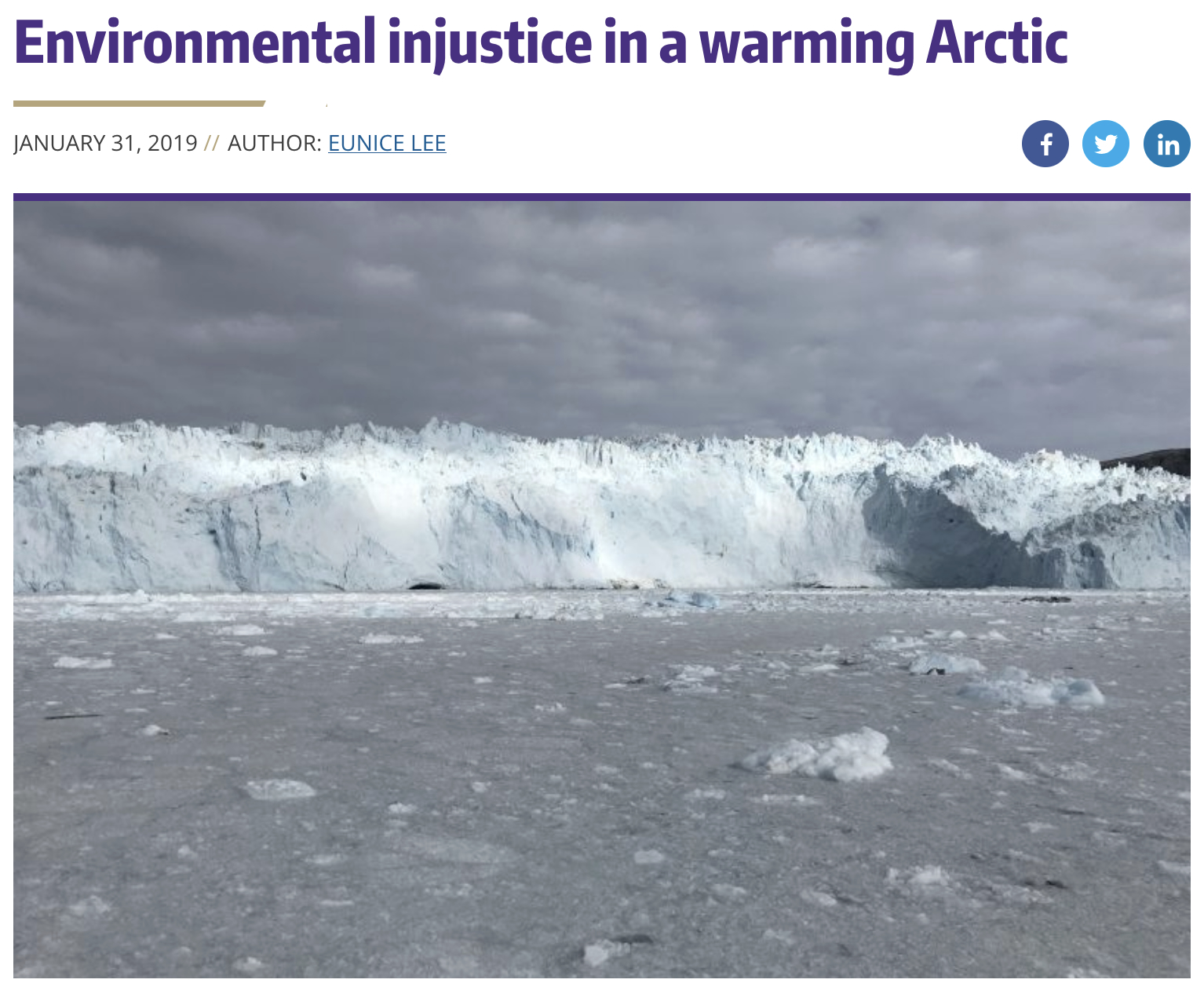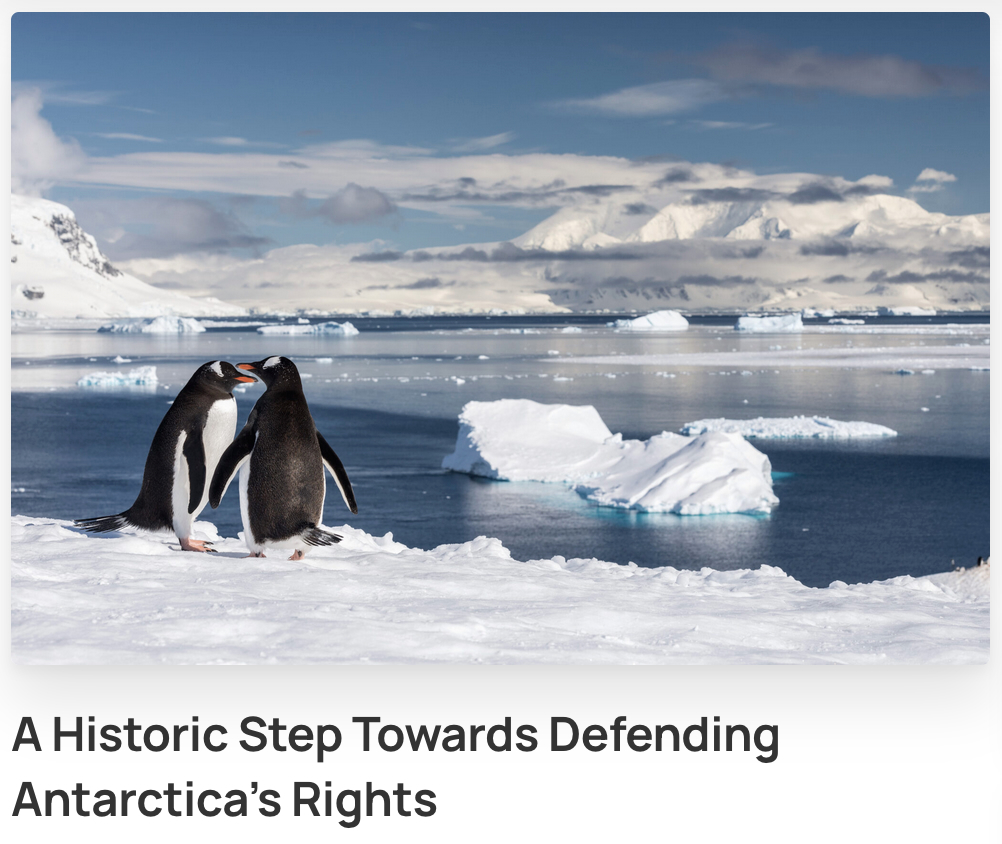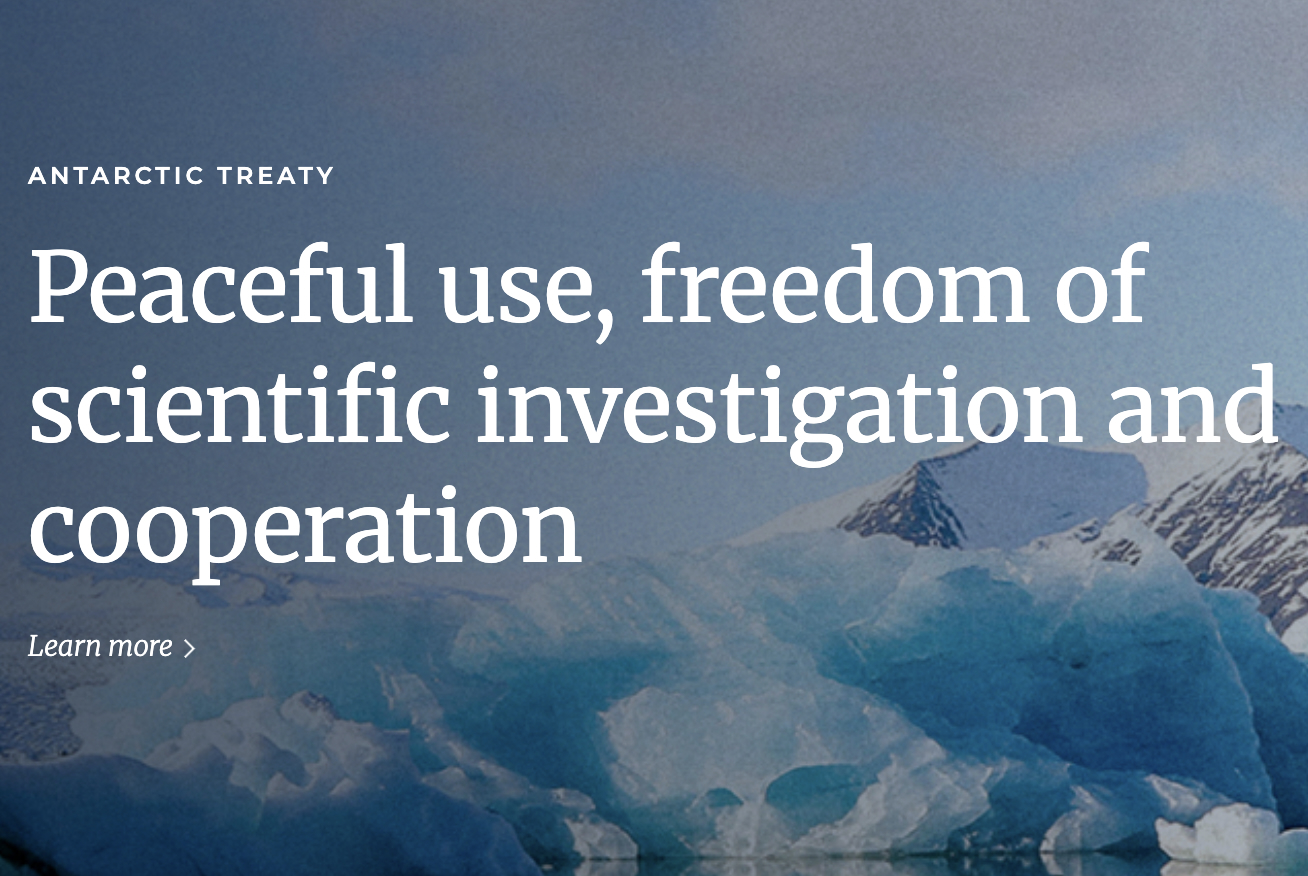Antarctica: Links
Further resources, if available, can be found in our full bibliography.

Environmental injustice in a warming Arctic: Eunice Lee
The article “Environmental Injustice in a Warming Arctic” reveals how climate change deepens inequality, especially for Indigenous communities facing disrupted food systems, health risks, and cultural loss. While Antarctica has no permanent population, similar patterns of injustice emerge in its governance. The Antarctic Treaty System excludes vulnerable nations most affected by polar ice melt, centralizes power among a few states, and prioritizes scientific and economic interests over ecological limits. Both poles expose the need for more inclusive, justice-based environmental governance.

A Historic Step Towards Defending Antarctica’s Rights – Global Alliance for the Rights of Nature (GARN)
The Global Alliance for the Rights of Nature proposes a bold shift in how the world relates to Antarctica. The initiative calls for a declaration that recognizes the continent as a living entity with legal rights. Rather than treating Antarctica as a geopolitical zone, this vision places ecological health at the center, thus seeking to confront the limitations of the current Treaty System and promote global responsibility for protecting one of Earth’s last wild places.

Secretariat of the Antarctic Treaty
The Antarctic Treaty Secretariat coordinates the operations of the Antarctic Treaty System from its base in Buenos Aires. It manages legal documents, environmental data, and records of Consultative Meetings. Parties to the Treaty rely on the Secretariat to uphold peaceful governance and scientific cooperation. Through tools, maps, and outreach materials, it ensures transparency and access to critical information for governments, researchers, and the public.
Photo Credit: Tomas Malik/Pexels